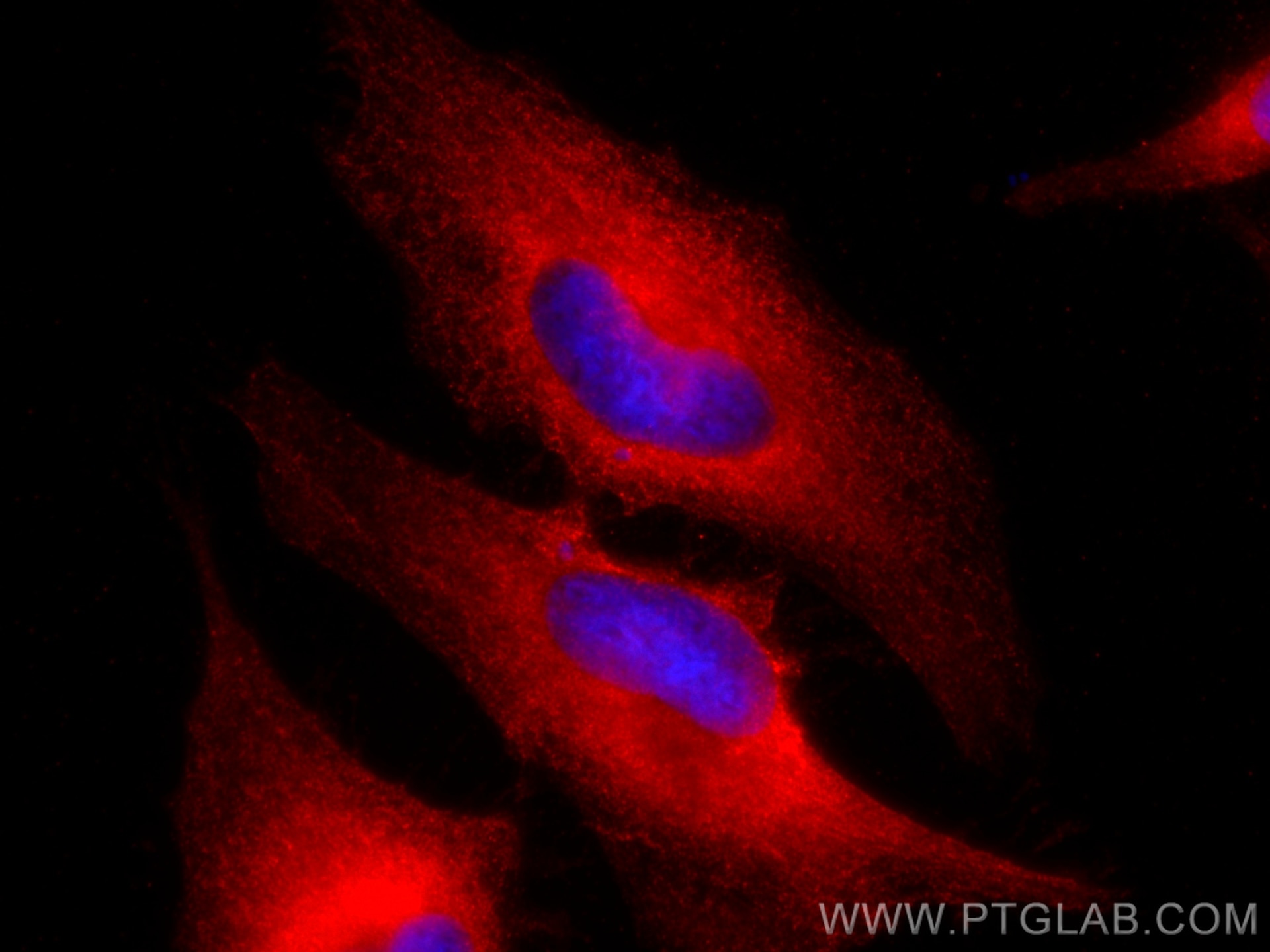Validation Data Gallery
Tested Applications
| Positive IF/ICC detected in | HeLa cells |
Recommended dilution
| Application | Dilution |
|---|---|
| Immunofluorescence (IF)/ICC | IF/ICC : 1:50-1:500 |
| It is recommended that this reagent should be titrated in each testing system to obtain optimal results. | |
| Sample-dependent, Check data in validation data gallery. | |
Product Information
CL594-60060 targets Follistatin in IF/ICC applications and shows reactivity with human, mouse samples.
| Tested Reactivity | human, mouse |
| Host / Isotype | Mouse / IgG2b |
| Class | Monoclonal |
| Type | Antibody |
| Immunogen | Follistatin fusion protein Ag0775 相同性解析による交差性が予測される生物種 |
| Full Name | follistatin |
| Calculated molecular weight | 33 aa, 7 kDa |
| Observed molecular weight | 35 kDa |
| GenBank accession number | BC004107 |
| Gene Symbol | Follistatin |
| Gene ID (NCBI) | 10468 |
| RRID | AB_2883413 |
| Conjugate | CoraLite®594 Fluorescent Dye |
| Excitation/Emission maxima wavelengths | 588 nm / 604 nm |
| Form | Liquid |
| Purification Method | Caprylic Acid-Ammonium Sulfate Precipitation |
| UNIPROT ID | P19883 |
| Storage Buffer | PBS with 50% glycerol, 0.05% Proclin300, 0.5% BSA , pH 7.3 |
| Storage Conditions | Store at -20°C. Avoid exposure to light. Stable for one year after shipment. Aliquoting is unnecessary for -20oC storage. |
Background Information
Follistatin (FST) is a member of the tissue growth factor β family and is a secreted glycoprotein that antagonizes many members of the family, including activin A, growth differentiation factor11 , and myostatin. It binds activin A with high affinity and whose expression can be induced by activin A and several other pro-inflammatory cytokines. Activin A-follistatin complexes are biologically inactive and bind to cell surface heparan sulphate-containing proteoglycans for internalisation and degradation. It has also been found to play a significant role in the management of skeletal muscle size and mass. It also has important roles in early embryonic development, differentiation of ovarian granulosa cells, liver fibrosis and polycystic ovarian syndrome.
Protocols
| Product Specific Protocols | |
|---|---|
| IF protocol for CL594 Follistatin antibody CL594-60060 | Download protocol |
| Standard Protocols | |
|---|---|
| Click here to view our Standard Protocols |
